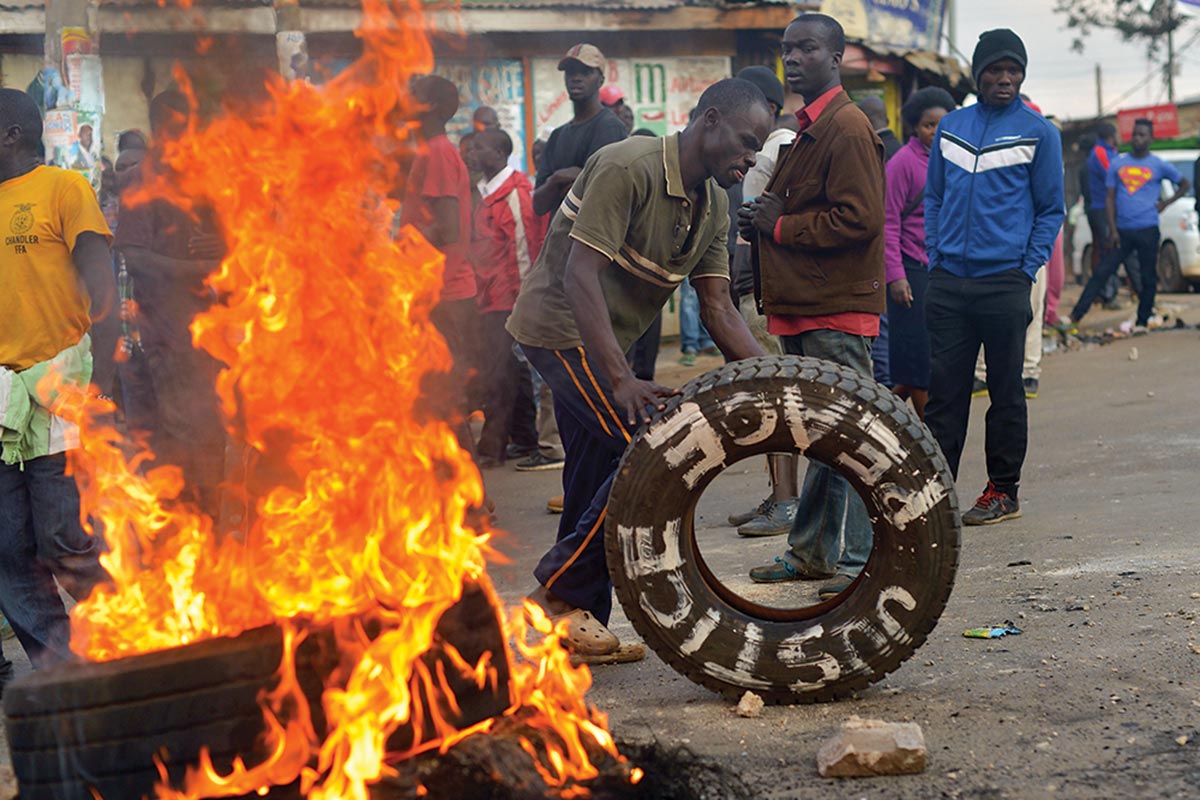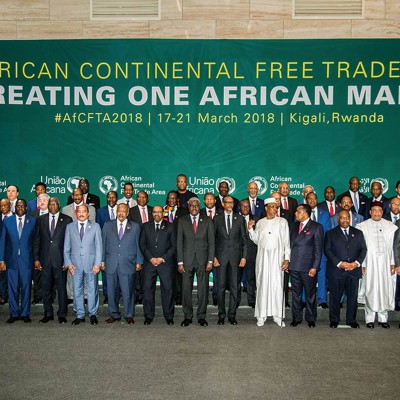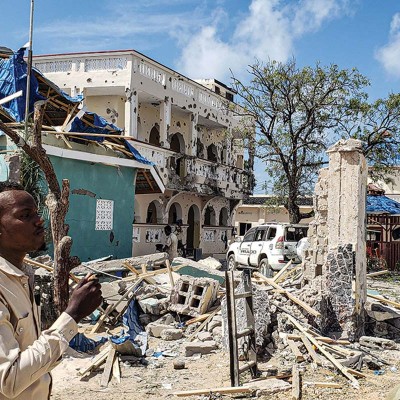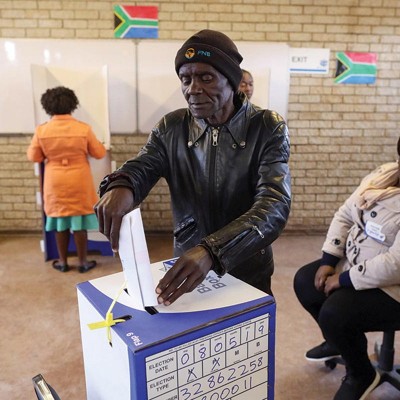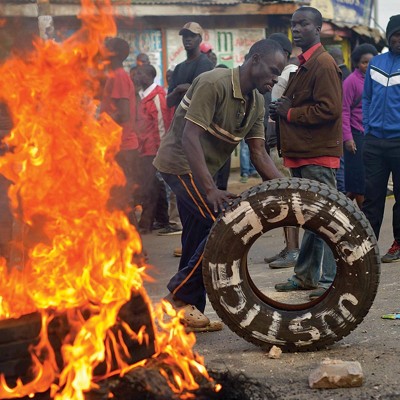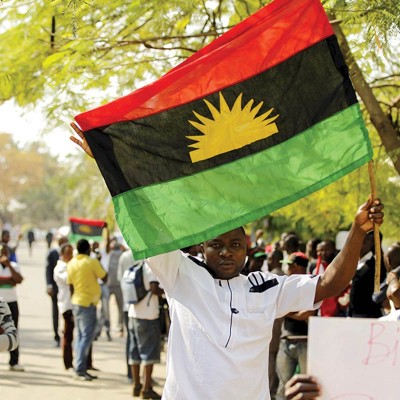Many African countries, over the past years, have suffered the effects of civil war – and, more specifically, gross human rights violations. During peace negotiations, victims of human rights abuses are generally not prioritised, as the focus on peace is seen by political actors as superseding the interests of victims and justice. However, what kind of peace can be built in total disregard of the suffering of hundreds or thousands of people? Can a democratic society and sustainable development be achieved where there is no accountability for human rights abuses?
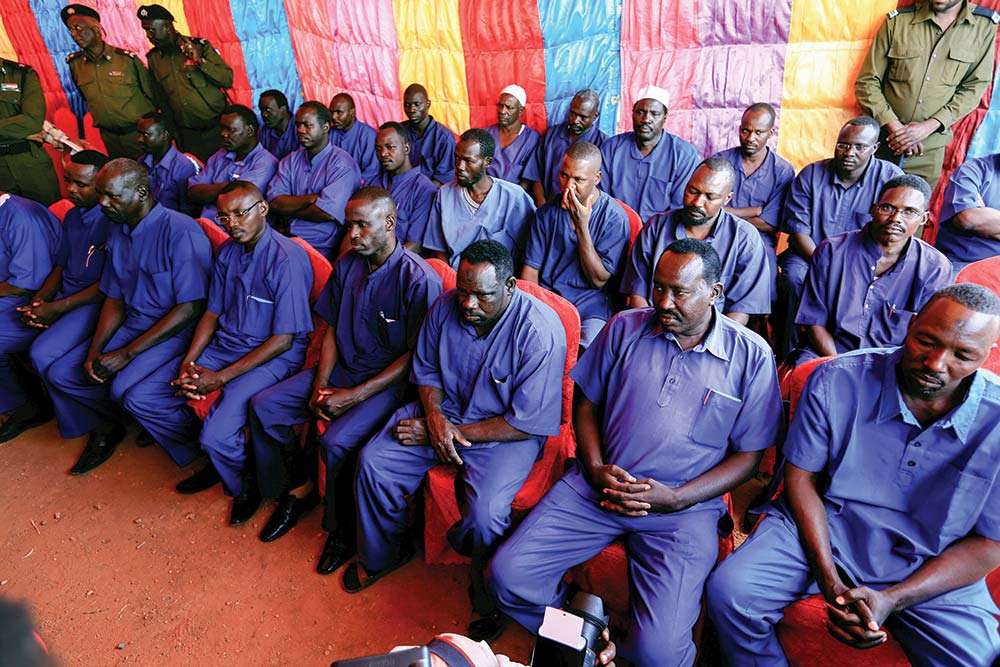
Usually, amnesties are used as an instrument of conflict settlement. The effect of these amnesties is to preclude any investigation or prosecution of perpetrators of human rights abuses committed during the conflict period. Amnesties are often an insurmountable obstacle to the victims’ right to a fair trial, and an ineffective remedy for the prejudice suffered. Amnesties can be defined as the legal measures that are used in transitional processes, often as part of peace settlements, to limit or preclude the application of criminal processes and, in some cases, civil actions against certain individuals or categories of individuals for violent actions committed in contravention of applicable human rights and international humanitarian law rules.1 From this definition, “amnesties have a long pedigree in peace negotiations and have historically been commonly used as part of peace settlements even for armed conflicts manifesting most atrocious acts.”2
Amnesties bring into confrontation two fundamental needs of all democratic societies: the need for peace and the need for justice. For example, this was the case after the fall of the apartheid regime in South Africa. The need for peace led the new regime, with Nelson Mandela at the helm, to opt for a Truth and Reconciliation Commission rather than using the judiciary to inquire into past atrocities.
As such, the aim of this article is to put forward the position of the African Commission on Human and Peoples’ Rights (hereafter African Commission) on the question: are amnesties compatible or incompatible with the human rights obligations of state parties to the African Charter on Human and Peoples’ Rights (hereafter African Charter)?
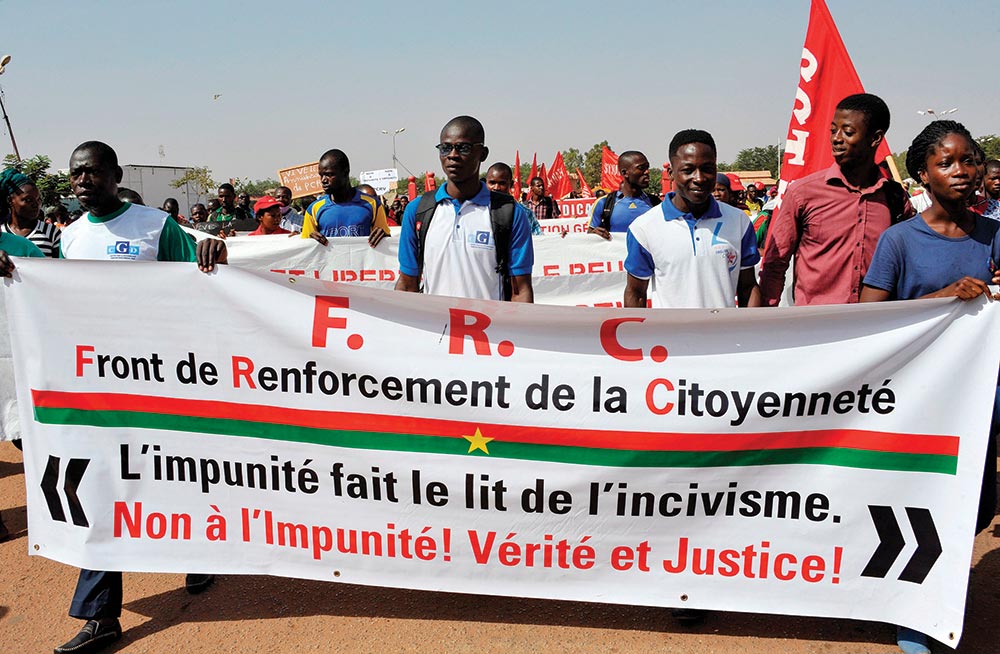
The Incompatibility of Amnesties with States’ Duties under the African Charter
In accordance with article 1 of the African Charter, state parties shall recognise the rights, duties and freedoms enshrined in this Charter and shall undertake to adopt legislative or other measures to give effect to them. Interpreting this provision, the African Commission concluded that state parties to the African Charter are under a general duty to respect, protect, promote and fulfil human rights. By so doing, they also have the specific duty to investigate and prosecute all illegal acts that amount to human rights violations.3
The Incompatibility of Amnesties with States’ Duties to Respect, Protect, Promote and Fulfil Human Rights
The duty to respect human rights imposes a negative obligation on the state not to interfere with the rights enshrined in the African Charter. The duty to protect human rights refers to a positive obligation on the state to ensure that third parties do not interfere with individual rights. This same positive obligation also derives from the duties to promote and fulfil human rights, according to which the state is under the obligation to advance the enjoyment of human rights by creating an enabling environment where a culture of human rights can thrive.4 All these duties impose on every state party the obligation not only to adopt multidimensional measures to guarantee to every person the effective protection of their rights, but also to refrain from adopting measures that can preclude people from exercising their rights.
As such, by adopting an amnesty law with the effect to preclude a person’s right to a fair trial and an effective remedy for abuse suffered, the state is acting in contradiction with its basic obligations. The African Commission made it clear that by being a party to the African Charter, a state “has no basis to deny its citizen those rights as guaranteed and protected by an international convention, which represents the minimum on which the state parties have agreed to guarantee fundamental human freedoms”.5 It went further to add that the entry into force of the Charter in a country creates for that country an obligation of consequence, deriving from the customary principle of pacta sunt servanda (agreements must be kept). The country consequently has the duty to adjust its legislation to harmonise with its international obligations.6 This adjustment obligation does not start and end at the moment of ratification of the Charter; it exists even after entry into force of the Charter, with the effect of precluding states to adopt legislations that are contrary to their international obligations.
Amnesties fall within this category of legislations, since they do not only remove victims’ rights to an effective remedy but also create an atmosphere of impunity that is favourable to human rights violations. This was the case in many South American countries, such as Argentina, El Salvador, Peru and so on, where amnesty laws were adopted to extinguish the criminal responsibility of military regimes in total disregard of the victims’ right to an effective remedy. The African Commission pointed out that “it is generally believed that the single most important factor in the proliferation and continuation of human rights violations is the persistence of impunity, be it of a de jure or de facto nature”.7 The African Commission added that “[amnesties], it is believed, encourages de jure as well as de facto impunity and leaves victims without compensation and effective remedy”.8 For clarification, de jure impunity generally arises where legislation provides indemnity from legal process in respect of acts to be committed in a particular context, or exemption from legal responsibility in respect of acts that have been committed in the past. De facto impunity occurs where those committing the acts in question are, in practice, insulated from the normal operation of the legal system.9 In any of these cases, amnesties are unequivocally contrary to states’ duties to investigate and prosecute human rights violations.
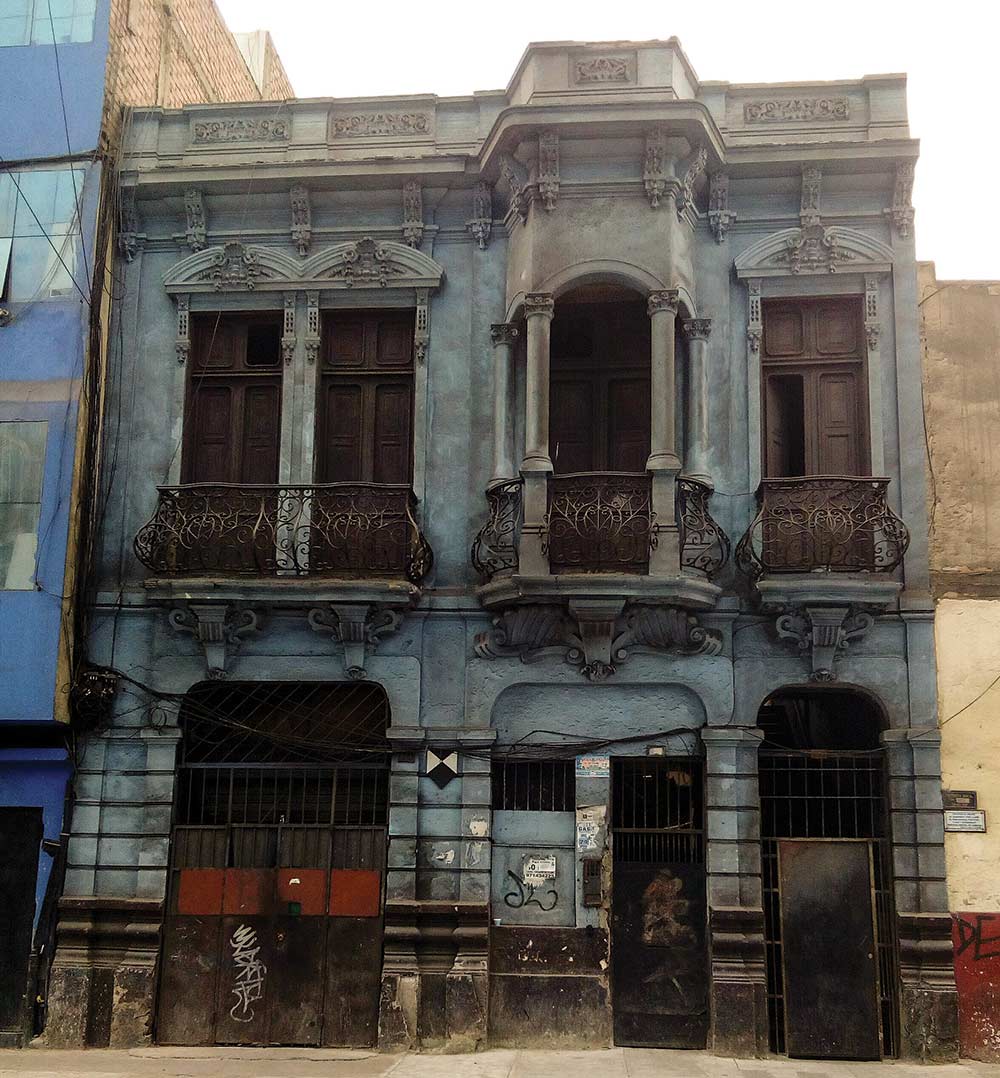
States’ Duties to Investigate and Prosecute Human Rights Violations
The international customary law principle of aut dedere aut judicare (extradite or prosecute) obliges any state that is unable to investigate and prosecute serious human rights abuses to extradite their perpetrators to any other state which is willing to do so. From this arises an international obligation to bring to justice and punish serious violations of human rights. This obligation has been recognised and established in all regional human rights mechanisms. For instance, the Inter-American Court of Human Rights has held that states must prevent, investigate and punish any violation of the rights protected by the American Convention on Human Rights. It stated in the landmark case of Barrios Altos versus Peru that “amnesty provisions, provisions on prescription and the establishment of measures designed to eliminate responsibility are inadmissible, because they are intended to prevent the investigation and punishment of those responsible for serious human rights violations”.10 Based on this, the court concluded on the “manifest incompatibility” of amnesties with the American Convention on Human Rights, outlining the fact that “the said laws lack legal effect and may not continue to obstruct the investigation (…) or the identification and punishment of those responsible”11 for serious human rights violations.
The African Commission held that “blanket or unconditional amnesties that prevent investigations (particularly of those acts amounting to most serious crimes referred to in Article 4(h) of the African Union (AU) Constitutive Act) are not consistent with the provisions of the African charter”.12 It emphasised the fact that “African States in transition from conflict to peace should at all times and under any circumstances desist from taking policy, legal or executive/administrative measures that in fact or in effect grant blanket amnesties, as that would be a flagrant violation of international law”.13 Blanket or unconditional amnesties are those that completely preclude investigation and prosecution of crimes committed during a period. They should be distinguished from conditional amnesties, which only provide for the extinction of responsibility of low-level officials, and only under certain circumstances.
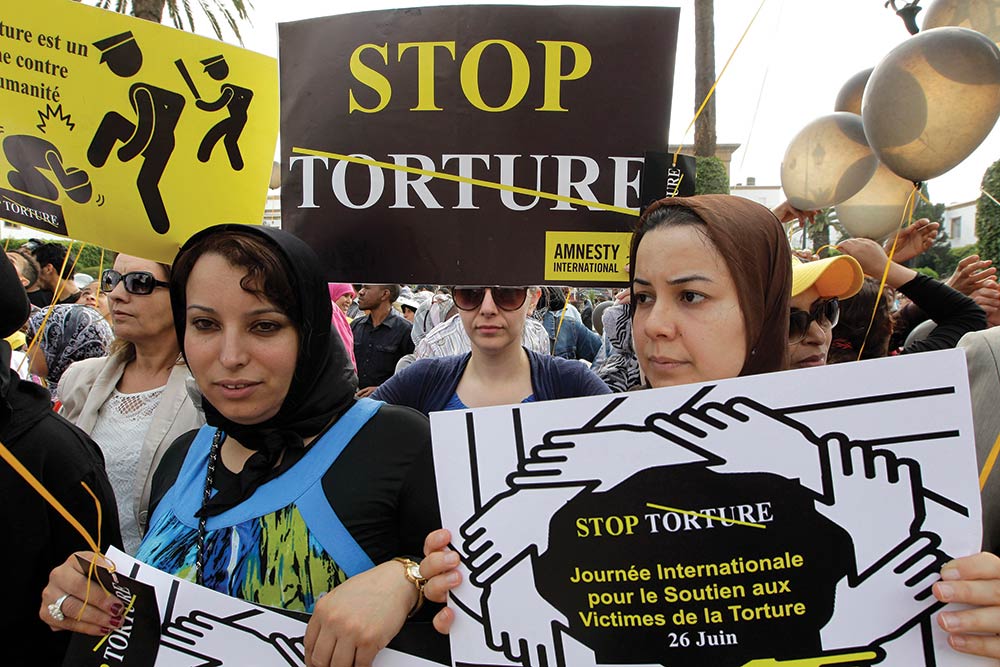
A large number of international human rights and humanitarian law instruments explicitly require state parties to ensure that criminal proceedings are instituted against perpetrators of acts prohibited in those instruments. As such, it is generally accepted that an amnesty which completely foreclosed accountability measures for such prohibited acts would be in contravention of those instruments. More specifically, “amnesties are (…) deemed to be incompatible with human rights treaties like the African Charter that do not explicitly address prosecution but which have been understood to require State Parties to institute judicial measures when serious violations occur (…). Amnesties that preclude accountability measures for gross violations of human rights and serious violations of humanitarian law, particularly for individuals with senior command responsibility, also violate customary international law.”14
This customary and fundamental prohibition of amnesties, especially blanket amnesties, is absolute in cases where serious human rights violations have been committed, such as torture or assaults to life. As such, even when amnesty is intended to establish conditions conducive to a peace agreement or to foster national reconciliation, it should be kept within certain bounds – that the perpetrators of serious crimes under international law and the perpetrators of gross and systematic violations may not be included in the amnesty unless the victims have been unable to avail themselves of an effective remedy and obtain a fair and effective decision.15
The Incompatibility of Amnesties with Rights Protected under the African Charter
The AU Constitutive Act stipulates that the promotion of democratic principles and the protection of human and people’s rights in accordance with the African Charter are among the AU’s objectives. These are also some of the main principles protected by the AU, which are built on respect for the sanctity of human life, and the condemnation and rejection of impunity and political assassination.16 From these objectives and principles, one can derive a fundamental prohibition of assaults to life and human dignity and a consolidation of the right of everybody to reparation.
A Fundamental Prohibition of Amnesty in Cases of Torture and Assaults to Life
The prohibition of torture in all circumstances and the protection of human life and dignity are non-derogable rules of international law. This rule is clearly stated in the Convention against Torture and Other Cruel, Inhuman or Degrading Treatment or Punishment, and articles 2 and 7 provide for a global duty to fight against the impunity of these acts. The African Commission affirms that the right to life is “the fulcrum of all other rights” and the “fountain through which other rights flow”.17 For these reasons, “article 4, which safeguards the right to life, ranks as one of the most fundamental provisions in the African Charter, to which no derogation is permitted. Together with article 5 [which prohibits torture], it also enshrines one of the basic values of democratic societies. (…) It prohibits in absolute terms torture or inhuman or degrading treatment or punishment, irrespective of the circumstances and the victim’s behavior”.18
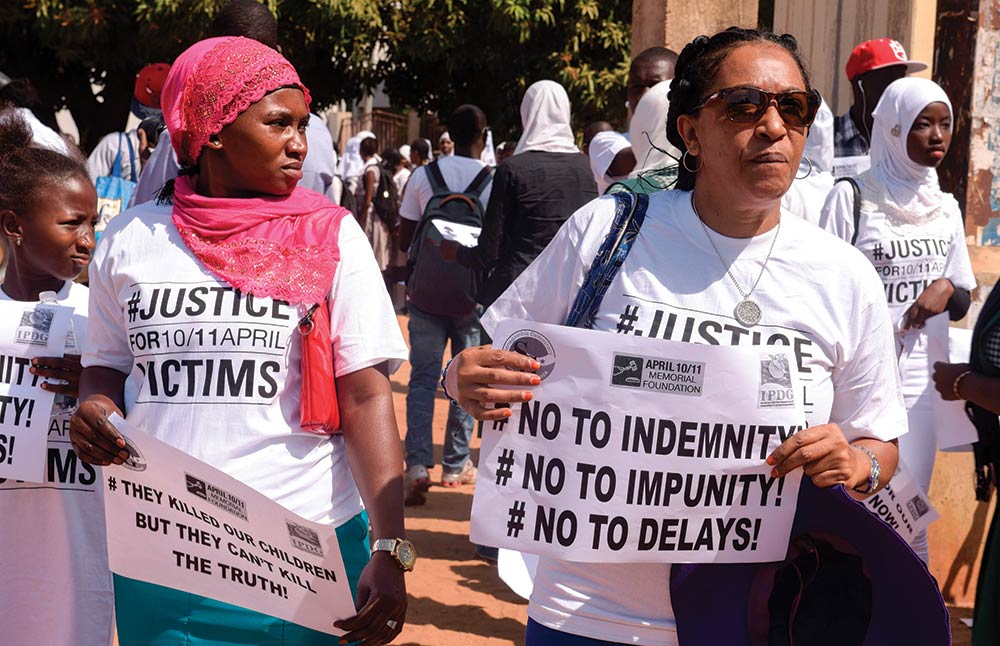
The absolute character of the protection of life and prohibition of torture imposes on states an obligation to investigate, prosecute and punish all those responsible for acts of torture and assaults to life. This also means that amnesties are fundamentally prohibited if they result in shielding those who have committed such acts. The United Nations (UN) Special Rapporteur on Torture has expressed his opposition to the passing, application and non-revocation of amnesty laws (including laws in the name of national reconciliation, the consolidation of democracy and peace, and respect for human rights), which prevents torturers from being brought to justice and hence contributes to a culture of impunity.19 The Vienna Declaration and Programme of Action stipulates that “states should abrogate legislation leading to impunity for those responsible for grave violations of human rights such as torture and prosecute such violations”.20 The Inter-American Court of Human Rights in the Barrios Altos case reaffirmed the prohibition of amnesties for serious violations of human rights such as torture, summary or extrajudicial or arbitrary executions and enforced disappearances.21
The African Commission has adopted the Robben Island Guidelines, which stipulate that states should ensure that there is no immunity from prosecution for nationals suspected of torture or ill-treatment.22 In its General Comment number 4 on prohibition of torture,23 the African Commission affirmed that states are precluded from extending blanket amnesty for torture as a gross violation of international human rights law, as a crime against humanity and as a war crime. This fundamental principle has also been re-emphasised by the International Court of Justice in the case opposing Belgium to Senegal over the fate of the former Chadian president Hissène Habré. In the court’s opinion, the prohibition of torture is part of customary international law and has become a peremptory norm (jus cogens).24 As such, no state may grant amnesty leading to the impunity of torturers. Moreover, states are under an obligation either to prosecute torturers or to extradite them to a country where they can be prosecuted. According to the African Commission, “states are under an obligation not only to make sure that torture is absolutely prohibited in their legislation, but also in practical terms. Where torture is allegedly inflicted and this is brought to the attention of the State, it is also under an obligation to initiate prompt, impartial and effective investigation in order to determine the veracity of the allegations and to bring the perpetrators to justice if the allegations are founded, as well as to afford redress to the victims.”25
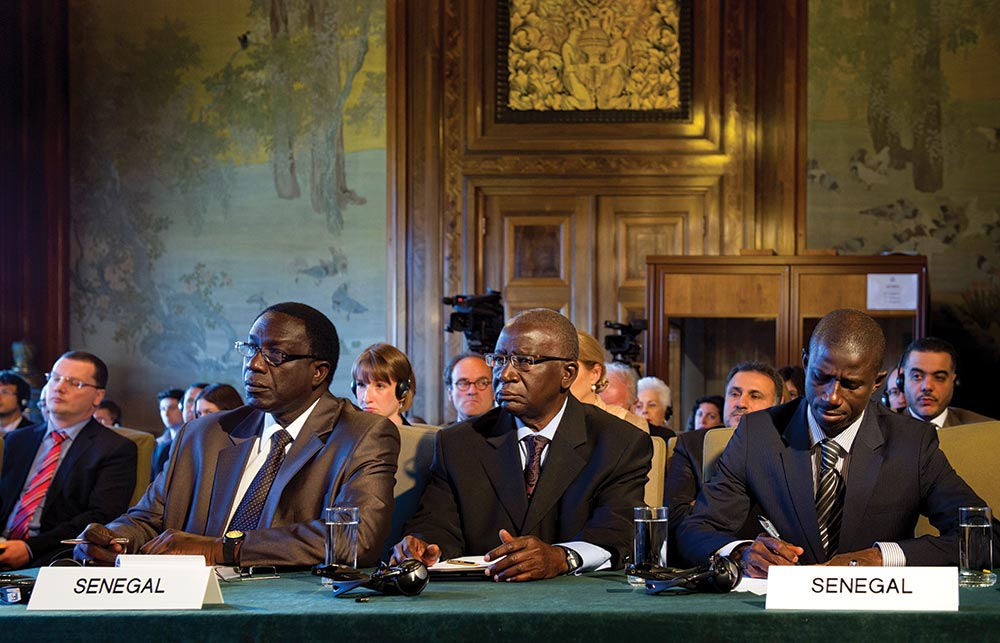
Amnesties as an Obstacle to the Victim’s Right to an Effective Remedy
The African Commission notes that “although the African Charter does not expressly provide for the right to adequate remedy, reparation or compensation; this right is a well-established principle of international law”.26 In fact, the protection of human rights would be inefficient if victims of abuses could not have access to a judge from whom they could obtain redress. Article 1 of the African Charter imposes on state parties a dual obligation of means and results. A state is under an obligation of means when the international instrument requires from it only the adoption of measures to give effect to the rights enshrined in the said instrument. A state is under an obligation of results if, in addition to adopting these measures, it must also make sure that they produce the necessary results in terms of effective protection of the rights enshrined in the international instrument.
Through this provision, state parties commit themselves to give effect to the rights enshrined in the Charter. As such, they are under an obligation not only to allow for victims to seek redress before competent courts, but also to refrain from precluding victims from doing so. On this ground, the African Commission has found that legal measures completely excluding prosecution with no alternative measures of accountability are incompatible with the provisions of the African Charter. This is especially the case with the right of individuals to have their cause heard under article 7(1).27 This position was affirmed in the General Comment number 4 on the prohibition of torture, where it states that blanket amnesties violate the victim’s right to judicial protection and to having their cause heard, such as in the Barrios Altos case previously mentioned.
This right should not be sacrificed for any reason – be it peace or national reconciliation. A UN report prepared by Louis Joinet pointed out that there can be no just and lasting reconciliation unless the need for justice is effectively justified, and that national and international measures must be taken with a view to securing jointly the interests of the victims of human rights violations, observance of the right to know and, by implication, the right to truth, the right to justice and the right to reparation, without which there can be no effective remedy against the pernicious effects of impunity.28 The UN Human Rights Committee noted that amnesties are generally incompatible with the duty of states to investigate human rights abuses, prevent them and make sure they do not occur in the future. “States may not deprive individuals of the right to an effective remedy, including compensation and such full rehabilitation as may be possible.”29
By adopting amnesty laws, states are in contravention with their duty to set up impartial, independent and competent courts for everyone to have their cause heard and to obtain reparation. The importance of this right was outlined in the Basic Principles and Guidelines on the Right to a Remedy and Reparation for Victims of Gross Violations of International Human Rights Law and Serious Violations of International Humanitarian Law, which states that adequate, effective and prompt reparation is intended to promote justice by redressing gross violations of international human rights law. All states are under an international obligation to provide reparation to victims of such violations.30
To sum up, this incompatibility of amnesties with the rights of individuals and the duties of states parties to the African Charter does not automatically mean that the interest of justice supersedes the interest of peace. Both are important and necessary, and it is up to the leaders of democratic societies to determine how to reconcile them in peace settlement processes without frustrating the rights of victims to an effective remedy in case of human rights abuses.
Endnotes
- African Commission (2018) Thomas Kwoyelo v. Uganda, Communication 431/12, § 286.
- Ibid., § 285.
- African Commission (2012) Noah Kazingachire and al. v. Zimbabwe, Communication 295/04, § 126–133.
- Ibid.
- African Commission (2000) Malawi African Association, Collectif des Veuves et Ayants-Droit and al. v. Mauritanie, Communication 54/91, 61/91, 98/93, 164/97, 196/97, 210/98, § 84.
- Ibid.
- African Commission (2012) Noah Kazingachire and al. v. Zimbabwe, op. cit., §200.
- Ibid.
- Ibid.
- Inter-American Court of Human Rights (2001) Barrios Altos v. Peru, judgement of 14 March 2001 (Merits), § 41. This case concerns the actions of members of the Peruvian Army, acting on behalf of a death squad known as the “Colina Group”, which carried out their own anti-terrorist programme and indiscriminately fired at a crowd, killing 15 people and seriously injuring four more. After the incident, an amnesty law was passed, which exonerated members of the army, police force and civilians who had violated human rights or taken part in such violations from 1980 to 1995. As a result, no legal action was taken against the perpetrators at the domestic level. The court found that the state violated the American Convention on Human Rights.
- Ibid., § 43.
- African Commission (2018) Thomas Kwoyelo v. Uganda, op. cit., § 293.
- Ibid.
- Ibid., § 289.
- Sub-Commission on Prevention of Discrimination and Protection of Minorities/Commission on Human Rights (1997) Question of the Impunity of Perpetrators of Human Rights Violations (Civil and Political), 49th session, E/CN.4/Sub.2/1197/20, 26 June 1997, principle 28. This report is also known as the Louis Joinet Report.
- AU Constitutive Act, article 3 (g) and (h) and article 4 (m) and (o).
- African Commission (n.d.) Gabriel Shumba v. Zimbabwe, Communication 288/04, § 130, 137 and 138.
- Ibid.
- African Commission (2012) Noah Kazingachire and al. v. Zimbabwe, op. cit., § 209.
- Vienna Declaration and Programme of Action, World Conference on Human Rights, Vienna, 25 June 1993.
- Inter-American Court of Human Rights (2001) Barrios Altos v. Peru, op. cit.
- Guidelines and Measures for the Prohibition and Prevention of Torture, Cruel Inhuman or Degrading Treatment or Punishment in Africa (The Robben Island Guidelines), African Commission, 32nd session, October 2002, Guideline N° 16.
- Adopted at the 21st Extra-Ordinary Session of the African Commission on Human and Peoples’ Rights, held from 23 February to 4 March 2017 in Banjul, The Gambia.
- International Court of Justice (2012) Questions Relating to the Obligation to Prosecute or Extradite (Belgium v. Senegal), judgment of 20 July 2012, § 99. In this case, Senegal was reluctant to try Hissène Habré for the crimes committed while he was in power in Chad. Senegal also refused to extradite him to Belgium, where there were proceedings pending against him for these crimes.
- African Commission (2014) Monim Elgak and al. v. Sudan, Communication 379/09, § 100.
- African Commission (2012) Noah Kazingachire and al. v. Zimbabwe, op. cit., § 209.
- African Commission (2018) Thomas Kwoyelo v. Uganda, op. cit., § 291.
- Sub-Commission on Prevention of Discrimination and Protection of Minorities/Commission on Human Rights (1997) op. cit.
- Human Rights Committee (1992) CCPR General Comment No. 20: Article 7 (Prohibition of Torture, or Other Cruel, Inhuman or Degrading Treatment or Punishment), 44th session, 10 March 1992, § 15.
- UN General Assembly (2005) Basic Principles and Guidelines on the Right to a Remedy and Reparation for Victims of Gross Violations of International Human Rights Law and Serious Violations of International Humanitarian Law, Resolution 60/147, 16 December 2005, § 15.

